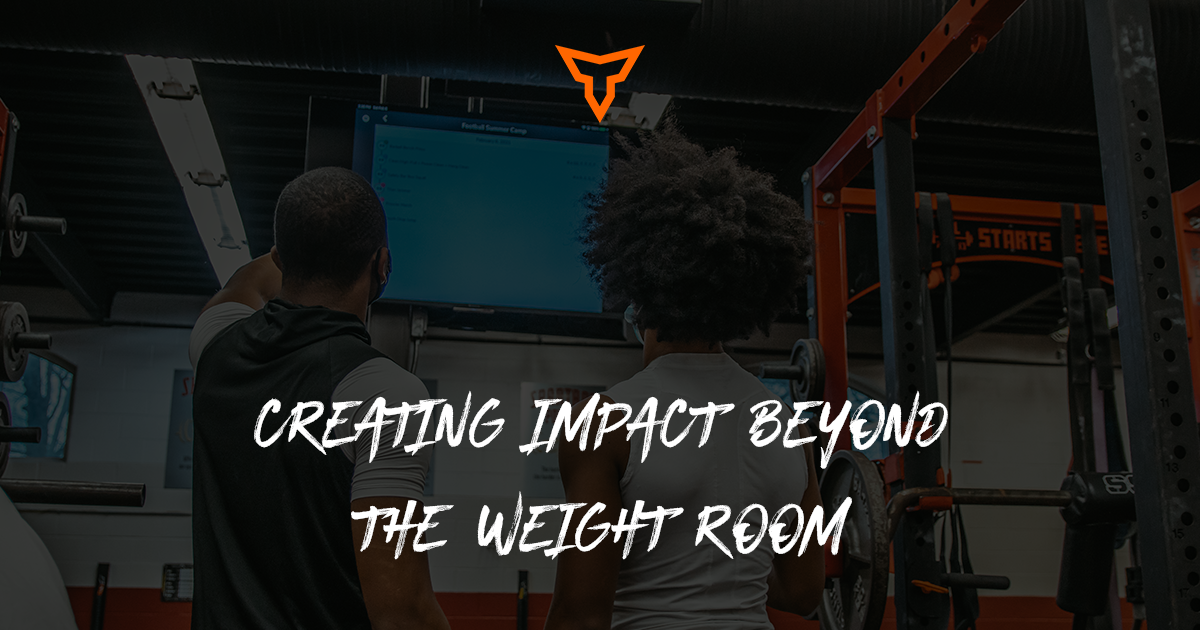Meet the Parents: The Lifeblood of Your Program
Uh oh. Here comes another email from another parent...
At the collegiate level of strength and conditioning, every coach has to learn how to communicate really well with their sport coaches. They have to relay everything from performance numbers, attitude, effort, and overall status of the team. The best coaches are skilled at communicating to the sport coaches in a way that they can understand. The longer you work with a coach, the better the communication usually gets. Most coaches schedule annual, monthly, and/or weekly meetings with their sport coach to make sure they are on the same page. All of these administrative actions are imperative for a college strength coach to have success. But what about the high school level?
The high school strength and conditioning job calls for dealing with a whole different animal... PARENTS. Yes, we still have to communicate with our sport coaches. It is still high on the priority list. But, if we want our S&C programs to really thrive, we must learn to communicate exceptionally well with the parents of the kids we are training.
Strength and conditioning coaches understand that most people cannot speak our language fluently. It is already hard enough to translate to the sport coaches that we work with, much less the parents of the athletes. It is easy for us to get frustrated as we try to explain things such as training on game days, why volume is the biggest factor for soreness, and that your kid does not need more “sport specific training”. But, if we want FULL BUY-IN for our program, it begins with winning over the parents. In this article, I am going to go over 3 ways to develop a relationship, communicate, and maintain good standing with sports parents.
#1: CONSISTENT AND OPEN COMMUNICATION
Every youth sports parent is going to want to give input on the training of their kid. Go ahead and get used to it. It is easy for us to get frustrated and mad when they do not understand our profession, but feel the need to tell us how to do our jobs. Here is a little advice: SO WHAT? The first and most important factor in winning over your parents is being available at all times. In my program, I make sure to always communicate every quarter with updates on what we are doing. I keep an eye on my email and make sure to reply to any questions that parents may have. Parents appreciate feeling like they matter. You will see great success when you approach your parents with a “customer service” mindset.
#2: GO TO THEIR KIDS GAMES AND INTRODUCE YOURSELF
One of the best strategies I can give you to win your sports parents over is to meet them in person. It goes a long way when you show the initiative to say hello at their kid’s games. As time goes by, the more you show your genuine interest in the success of their kid, the more they will be willing to buy into what you want to do in your program. The conversations do not have to be long. Just be willing to go shake someone’s hand to get a face matched with a name. You never know what you may get out of it as well...
#3 MAKE IT CLEAR WHAT THE OVERALL PRIORITY IS... THE KID.
In my program at Madison Academy, our philosophy is three words, HEALTH DRIVES PERFORMANCE. In our Human Performance Model, every decision that we make reflects our philosophy. I make sure to drive home the point that if our players are hurt, we are not getting better, and they are not getting better. Every decision in training must reflect this! When the overall safety and health of the kids is your true priority, the parents will trust you much quicker.
Nothing will expedite or slow down your S&C program quicker than your relationship with parents. Don’t get me wrong, not every conversation is pretty. Some parents will challenge my thought process on why we do what we do. It is how you approach the explaining and defending of your program is what matters. At the end of the day, the parents want to feel appreciated and want to see their kid succeed. The more you communicate, show your face, and keep them safe, you are on your way to building a great strength and conditioning program.
Subscribe to our blog
Subscribe to receive the latest blog posts to your inbox every week.
Related posts

Building Strong Relationships with Athletes' Parents

Sport Psychology Starter Pack: What to Focus on with Your Athletes


